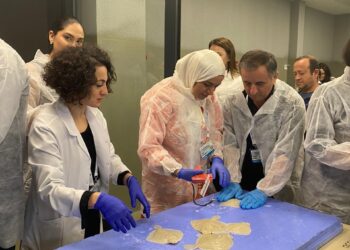Ocean protection: what will Africa gain from the UN-approved treaty? – After almost two decades of negotiations, the United Nations (UN) has approved the Ocean Protection Treaty, a text that “maintains the 30×30 goal of protecting 30% of the world’s oceans by 2030,” Greenpeace said in a statement.
Above all, the treaty paves the way for the creation of fully or highly protected areas in all the world’s oceans, according to the environmental organisation. Celebrating this “monumental victory” which is an “important signal that multilateralism still works in an increasingly divided world”, it already believes that “governments must ensure that the treaty is implemented effectively and fairly”.
Indeed, the signatory countries have the choice of adopting the text by parliamentary means or by presidential decree, says Abdoulaye Ndiaye, Oceans Campaigner at Greenpeace Africa, an international organisation that has been following this issue for ten years.
“States were struggling to agree on the essentials to protect the oceans in order to allow their resources to continue to serve humanity,” Ndiaye told, praising the “very important” role of African and Southern countries in general, which decided to speak “with one voice” after understanding “the stakes”.
“Each country was prevailing its interests, which delayed the signing of the agreement. If I take the example of the high seas, few African countries have vessels capable of fishing in these waters. On the other hand, the countries of the North have enough means to track down fish everywhere,” he explained. It was therefore a David versus Goliath battle that caused states to “dither” for a long time before reaching this agreement, which aims to protect the ocean ecosystem.
The equitable sharing of monetary benefits from marine genetic resources from the high seas was a major point of contention between the Northern and Southern States. This point was only resolved on the last day of the negotiations, Greenpeace reports, pointing out that the goal of protecting 30% of the oceans by 2030 (30×30), agreed at the fifteenth Conference of the Parties (COP15) on biodiversity, would not be achievable without this historic treaty.
“This is a historic day for conservation and a sign that in a divided world, the protection of nature and people can triumph over geopolitics (…) Given the plight of the oceans, countries must formally adopt the treaty, ratify it as soon as possible and then put in place the fully protected ocean sanctuaries our planet needs,” said Dr Aliou BA, Ocean Campaigner for Greenpeace Africa.
Ocean protection: what will Africa gain from the UN-approved treaty?








